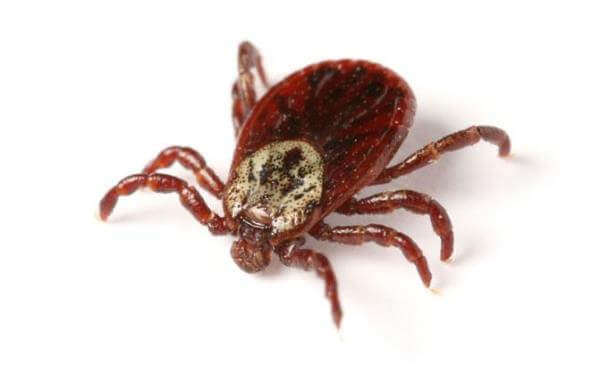
Health officials are urging people to protect themselves from tick bites as ticks are active from early spring through late fall.
A fatal case of ehrlichiosis in Floyd County, Indiana, has already been reported this month. The Floyd County Health Department and the Indiana Department of Health are working on the investigation. Indiana reported two ehrlichiosis deaths last year.
In addition to ehrlichiosis, people are at risk for several other potentially severe tick-borne diseases. While Lyme disease is the most common tick-borne disease, people are also at risk for a group of diseases that includes Rocky Mountain Spotted Fever. They are also at risk for alpha-gal syndrome, a condition caused by tick bites that can trigger an allergic reaction to red meat. The risk for tick-borne diseases is present in all parts of the state.
Preventing tick bites is the best way to prevent tick-borne diseases. People are encouraged to take the following precautions to prevent tick bites:
- Know where ticks are likely to be present (close to the ground in grassy, brushy, or wooded areas)
- Treat boots, clothing and outdoor gear with 0.5% permethrin (NOTE: permethrin should NOT be used on bare skin)
- Use EPA-registered insect repellents with active ingredients such as DEET, picaridin, IR3535, oil of lemon eucalyptus (OLE), para-menthane-diol (PMD) or 2-undecanone
- Treat your pets for ticks in consultation with a veterinarian
Once indoors, people should thoroughly check for ticks on clothing, gear, pets and skin. Tumbling clothes in the dryer on high heat for 30 minutes will kill ticks, and showering can help remove any unattached ticks. Attached ticks may be safely removed by using tweezers to grasp the tick close to the skin and then pulling outward with steady and even pressure. After the tick is removed, the area should be washed thoroughly. Ticks should never be crushed with the fingernails.
Anyone who becomes ill after finding an attached tick should see a healthcare provider immediately and alert the provider to the exposure. Most tick-borne diseases can be treated with antibiotics, and prompt diagnosis can help prevent complications. Testing ticks to see if they are carrying diseases is not generally recommended, as the information cannot reliably be used to predict whether disease transmission occurred.


 Parkview hosts annual school spelling bee
Parkview hosts annual school spelling bee
 GSH receives accreditation
GSH receives accreditation
 Crawford County man charged with sex crimes
Crawford County man charged with sex crimes
 Voter registration underway in Lawrence County
Voter registration underway in Lawrence County
 DNR receives regional award for project on former mine land near Pleasantville
DNR receives regional award for project on former mine land near Pleasantville
 Unit #10 Board hosts project open house
Unit #10 Board hosts project open house
 County to assist in Sumner street improvements
County to assist in Sumner street improvements
 BMV announces Christmas and New Year's Day holiday hours
BMV announces Christmas and New Year's Day holiday hours
 Bridgeport boil order lifted
Bridgeport boil order lifted
 Gregg Park project to move forward
Gregg Park project to move forward
 St. Francisville hires water engineer
St. Francisville hires water engineer
 Christy Fire District recipient of Heath grant
Christy Fire District recipient of Heath grant
 Lewis Manor fire in Lawrenceville
Lewis Manor fire in Lawrenceville
 Lawrence Unit #20 adds personnel in special session
Lawrence Unit #20 adds personnel in special session
 Lawrenceville City Council discuss new IEPA violations
Lawrenceville City Council discuss new IEPA violations
 Annual tax levy given approval for St. Francisville
Annual tax levy given approval for St. Francisville
 Lawrenceville gets another EPA violation notice
Lawrenceville gets another EPA violation notice
 Consumer Alert: Dozens of dangerous products recalled in November
Consumer Alert: Dozens of dangerous products recalled in November




